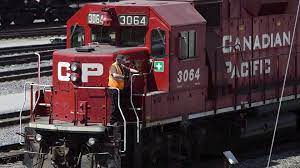
Provided by Mike Steenhoek – Soy Transportation Coalition
A labor dispute has shut down operations at Canadian Pacific Railway – the second largest Canadian railroad (after Canadian National Railway) that provides significant service into and throughout the United States. The shut down began yesterday, but talks are continuing with federal mediators at the table. The negotiations are between Canadian Pacific and the Teamsters Canada Rail Conference over higher pension caps and increased wages and benefits. Canadian Pacific notified the union this past Wednesday, March 16th that it would lock out employees on Sunday, March 20th, unless a breakthrough in talks would occur. On yesterday, Canadian Pacific announced the lockout with the union responding by announcing a strike. The union represents 3,000 engineers, conductors, and yard workers in the Canadian Pacific network.
In 2021, Canadian Pacific transported 428,568 carloads of grain and 151,789 carloads of potash (source: Canadian Pacific) – much of which originates from or is delivered to the 175 U.S. grain elevators served by the railroad. The railroad is a significant component of the U.S. agricultural supply chain.
It is never a good time to have a stoppage at one of U.S. agriculture’s key rail service providers, but it is particularly inopportune given the global supply chain challenges that continue to plague the global economy. The current war in Ukraine is placing additional pressure on delivering U.S. agricultural production and inputs, particularly fertilizer. A shut down in operations at Canadian Pacific will certainly compound that stress. We encourage both parties to continue negotiations and arrive at an agreement that will result in a quick resumption of service.
The current through which the global supply chain operates is predictability. Without predictability, it is impossible to have a functioning, effective supply chain. Over the past couple years, we have experienced a variety of disruptions that have been induced by severe weather (e.g. Hurricane Ida), the COVID pandemic, cyber-attacks (e.g. Colonial Pipeline), structural deficiencies (e.g. the I-40 bridge by Memphis), and other causes. We now are experiencing a disruption produced by a labor dispute.
